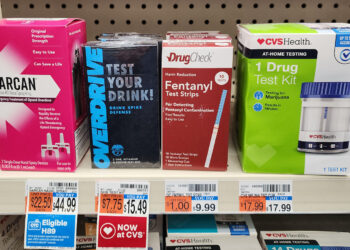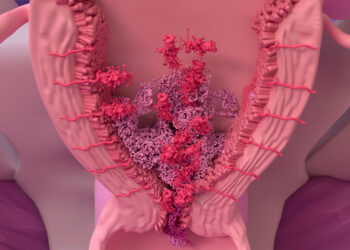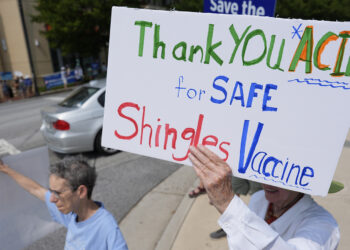TOPLINE:
Sweetener intake, including aspartame and sucralose, was associated with an increased risk for early puberty in children, particularly in those who were genetically predisposed. Sex-specific effects were noted, with sucralose showing a stronger association with early puberty in boys and glycyrrhizin, sucralose, and other sugars in girls.
METHODOLOGY:
- The prevalence of central precocious puberty, characterized by the early onset of secondary sexual characteristics, is increasing, highlighting the need for research into its causes and prevention strategies.
- Researchers analyzed a cohort of 1407 children from the Taiwan Pubertal Longitudinal Study to assess the effect of sweetener intake and genetic predisposition on the risk for central precocious puberty.
- Sweetener intake was evaluated using validated questionnaires and urinary biomarkers.
- Genetic predisposition was quantified using polygenic risk scores derived from 19 single-nucleotide polymorphisms related to central precocious puberty.
- Central precocious puberty was diagnosed using clinical, hormonal, and imaging criteria.
TAKEAWAY:
- Central precocious puberty was diagnosed in 481 children.
- Aspartame, glycyrrhizin, sucralose, and added sugars showed a significant association with an increased risk for central precocious puberty, especially in children with a genetic predisposition.
- The consumption of these sweeteners showed a dose-dependent relationship, with a higher intake increasing the risk for central precocious puberty. No significant interaction effects were found between genetic predisposition and sweetener intake.
- Sex-specific effects were noted; the consumption of sucralose was associated with a higher risk for central precocious puberty in boys, and the consumption of sucralose, glycyrrhizin, and added sugars was associated with a higher risk in girls.
IN PRACTICE:
“The findings indicate that sweetener consumption and genetic predisposition are independently associated with CPP [central precocious puberty] risk. Integrating genetic and dietary assessments could guide prevention strategies for children at heightened risk, mitigating the long-term health impacts of early puberty,” the authors of the study wrote.
“The findings are directly relevant to families, pediatricians, and public health authorities,” the lead author said in a press release. “They suggest that screening for genetic risk and moderating sweetener intake could help prevent early puberty and its long-term health consequences. This could lead to new dietary guidelines or risk-assessment tools for children, supporting healthier development.”
SOURCE:
The study was led by Yang-Ching Chen, MD, PhD, Taipei Municipal Wan Fang Hospital and Taipei Medical University, Taipei, Taiwan. It was presented at ENDO 2025: The Endocrine Society Annual Meeting in San Francisco.
LIMITATIONS:
No limitations were discussed in the abstract.
DISCLOSURES:
The authors had no disclosures, and no conflict of interest statements were provided.
This article was created using several editorial tools, including AI, as part of the process. Human editors reviewed this content before publication.
Source link : https://www.medscape.com/viewarticle/sweeteners-and-genetics-linked-early-puberty-risk-2025a1000jtq?src=rss
Author :
Publish date : 2025-07-28 08:49:00
Copyright for syndicated content belongs to the linked Source.












